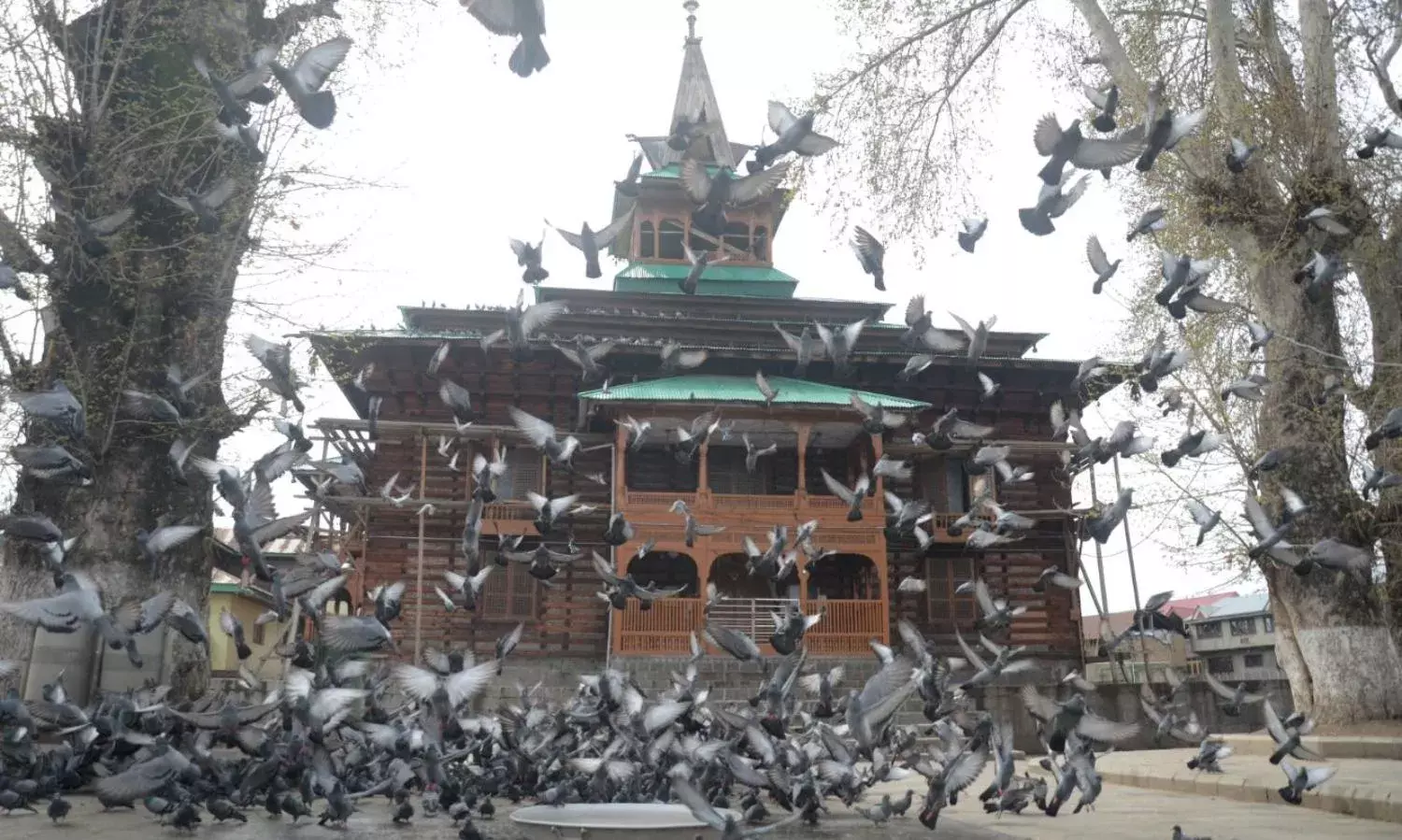This Virus Demonstrates the Fragility of a Human Dominated Planet
Shut down overconsumption

The new coronavirus has successfully challenged the concept of the Anthropocene, an age marked by the dominance of human beings over Earth. Its unhindered spread and infection leading to the collapse of economies and a halt to the normal life of human beings across the world makes us mindful of the fragility of humans and the civilisations they created.
Building up arms and making themselves immune to military attack was always the priority of governments and nations. Who could have thought that humans would ever feel so insecure despite their nuclear arsenals, their military might, the robust deterrence they so ingeniously devised?
A teacher of abnormal psychology described the twentieth century as the century of anxiety. Already the twenty-first century has been described as the century of fear. Joshua Lederberg, winner of the 1959 Nobel Prize in medicine, very rightly warned that human dominance on planet Earth would be challenged by viruses.
Spectacular advancements in science and technology are dwarfed by the spread of a tiny, roving virus, from animals to human animals in a distant province in China, and its subsequent grip over the entire human race which is at its wit’s end to come out of its grip.
The virus is forcing us to question the way we live, the manner in which we exploit nature and the way we differentiate ourselves on the basis of religion, nationality and other narrow identities. It has taught us the vital point that humans are not the measure of all things and they must learn to be humble.
On the 410th death anniversary of Copernicus, Einstein said there is a larger meaning to the discovery that the earth revolves around the Sun. If Earth is not the centre of the solar system or universe, then man inhabiting Earth cannot be the centre of anything. So, he said, Copernicus’ discovery teaches us not to consider ourselves the centre of anything, and to remain humble. It was a message to counter the age of the anthropocene.
Now, for perhaps the first time in human history, we may achieve a planetwide consciousness, that humans as a species need to live in harmony with nature as they are part of the web of life manifested in diverse species.
As Nehru said in his famous ‘Tryst with Destiny speech’, “Peace has been said to be indivisible; so is freedom, so is prosperity now, and so also is disaster in this one world that can no longer be split into isolated fragments.” This unprecedented disaster threatening the health and security of all humans everywhere, validates Nehru’s vision that disaster is indivisible in this one world.
The planetary consciousness, to respond to disaster in unison, is crucial to understanding that human health and security are coterminous with ecological security.
Mahatma Gandhi had questioned mindless consumption and the celebration of possessive individualism in the newly created nation-states of Europe right from the 16th century.
To counter reckless consumption he prescribed Aswad, control of the palate, and to couner possessive individualism he prescribed non-possession. Because possessive individualism became a factor behind violence, he prescribed non-violence. In fact non-violence, non-possession, non-stealing and Aswad became part of his Eleven Vows to rule oneself, such that self-rule would be ushered in by liberating India from British rule.
These voracious consumption patterns obviously created fertile conditions for the rise and spread of this coronavirus, which is a new virus for which there is no vaccine and no cure.
Rob Wallace, author of Big Farms Make Big Flu said in a recent interview that “Anyone who aims to understand why viruses are becoming more dangerous must investigate the industrial model of agriculture and, more specifically, livestock production. At present, few governments, and few scientists, are prepared to do so.”
He poignantly observed, “When new outbreaks spring up, governments, the media, and even most of the medical establishment are so focused on each separate emergency that they dismiss the structural causes that are driving multiple marginalised pathogens into sudden global celebrity, one after the other.”
His observation that “agribusiness is so focused on profits that selecting for a virus that might kill a billion people is treated as a worthy risk” indicts the structure and scope of our ecologically unsustainable production and consumption process which is at the root of the spread of viruses like this one.
While corona may have originated in a wildlife food market, swine flu, bird flu, mad cow disease emerged elsewhere. Their emergence and dizzying spread is caused by the multiplication of wants and desires which Gandhi observed is the sheet anchor of modern civilisation. And one day, he cautioned, that civilisation would collapse like a nine day wonder.
Gandhi defined civilisation in terms of restraint and discipline, and so wanted the ideals of non-violence and non-possession and non-stealing as its guiding principles. These are the principles described by modern scholars as foundational pillars of a post-materialistic world order.
Therefore, the alarming spread of corona across the world, and the lockdowns and shutdowns it has imposed on human activities, must usher in another lockdown and shutdown, of reckless luxury and overconsumption, and the production process it demands. This will herald a brave new world of equality, compassion, care and new consciousness for sustainable planetary health and security.
Cover Photograph BASIT ZARGAR



